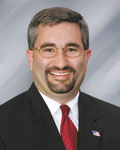October 5, 2011
Personal Property’s Place in your Estate Plan
 By Curt Ford
By Curt Ford
Nash Nash Bean & Ford
John and Jan planned their final years carefully. They purchased long-term care insurance for nursing home care. They wrote a comprehensive estate plan that distributed their assets as they desired. They even planned their own funerals, all to ease the way following their deaths.
But, they hadn’t planned on the family feud over Grandma’s china.
John and Jan’s children had no problem with how their parents divided the major financial assets among family and charities, but like many other families, they stopped talking and started yelling when everyone in the family wanted the treasured family china set.
With a little advanced planning, and a bit more communication, John and Jan could have averted a family feud. Unfortunately, like many others, when John and Jan set up their living trust and estate plan, they reviewed their financial assets and physical property but did not consider the highly emotional value of personal property and family heirlooms.
To ensure this problem does not occur in your family, consider the following for your estate plan:
• Categorize your personal property in a single system, such as dishes, furniture, clothing, heirloom, etc., so you fully understand what you own.
• Discuss your personal property with friends and
families to best understand their preferences.
• Keep your inventory sheet of personal property and indicate who you would like to receive each item.
• For photos or heirloom family documents, make copies of each for family members and indicate who should keep the original.
• Discuss these steps and your distribution with your successor trustees and beneficiaries. Frequently, a family fight can be avoided if the heirs understand the reasoning behind the distribution.
As with any part of your estate plan, to best ensure your plan not only meets your personal wishes but also is legal, you should consult a qualified estate planning attorney. Between the two of you, you will complete a plan that provides for both your traditional financial assets and for your personal family heirloom assets.
Nash Nash Bean & Ford, LLP are members of the American Academy of Estate Planning Attorneys and the National Academy of Elder Law Attorneys. To receive a copy of our most recent newsletter, “Your Estate Matters” or for a free consultation on Estate or Long Term Care planning, call 309-944-2188, 309-762-9368 or 1-800-644-5345. You may also contact our firm by email at info@nashbeanford.com or visit our website at www.nashbeanford.com.
The firm devotes its practice primarily in the areas of estate, business and tax planning and related areas of the law as well as elder law and trust administration and probate. We offer guidance and advice to our clients in every area of estate planning.
This column is designed for general information purposes only and is not intended, nor should be construed or relied upon, as legal advice. Please consult your attorney if specific legal information is desired.
Curt Ford is an attorney at Nash Nash Bean & Ford. He can be reached at (309) 944-2188 or (309) 762-9368 or at info@nashbeanford.com
Filed Under: Finance
Tags: Advanced Planning, Beneficiaries, Emotional Value, Family Documents, Family Feud, Family Fight, Family Heirlooms, Financial Assets, Ford John, Funerals, Heirs, Inventory Sheet, Living Trust, Long Term Care Insurance, Nursing Home Care, Personal Property, Single System, Successor Trustees, Term Care Insurance, Treasured Family
Trackback URL: https://www.50pluslife.com/2011/10/05/personal-property%e2%80%99s-place-in-your-estate-plan/trackback/


